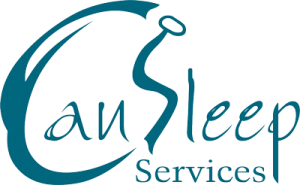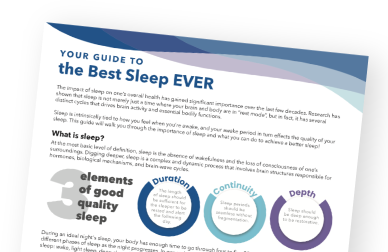Why does sleep apnea increase the risk of other health issues?
Obstructive sleep apnea causes hypoxia, which means oxygen levels in the body are low. As a result, the body becomes stressed and alerts the brain that the body needs oxygen, causing an increased heartbeat and narrowing of the arteries. In addition, blood sugar rises, causing inflammation that can damage the heart and blood vessels.
Common Sleep Apnea symptoms
- Loud snoring
- Pauses in breathing
- Headaches
- Daytime fatigue
- Mood swings and irritability
- Memory loss
Severity of sleep apnea
Sleep apnea testing assesses the number of pauses in breathing (apneas), plus the number of periods of shallow breathing (hypopneas) while asleep. The Apnea-Hypopnea Index (AHI) measures sleep apnea severity. An AHI:
- Less than 5 is normal
- 5 – 15 is mild
- 15 – 30 is moderate
- Greater than 30 is severe
Its important to note that whether you need treatment sleep apnea depends on its severity and considerations of symptoms and other health conditions. In other words, it may be wise to treat mild sleep apnea if other risk factors are present such as heart disease.
Additionally, even if a person does not have typical symptoms such as loud snoring, yet has been diagnosed with severe sleep apnea, its important to seek treatment in order to reduce the risk of other medical conditions.
Potential health impacts of untreated sleep apnea
- Sleep apnea can raise your risk of a stroke by two or three times. (1)
- Sleep apnea can increase the chance of heart-attack or death by 30 percent over a period of four to five year. (2)
- Sleep apnea can increase the risk of sudden cardiac death. (3)
- Survival rates from heart failure is better for those who treat their sleep apnea. (4)
- People with sleep apnea and irregular heart rhythm (atrial fibrillation) have only a 40 percent chance of needing further treatment if both conditions are treated. If sleep apnea remains untreated, the chance of needing further treatment for irregular heart rhythm goes up to 80 percent. (5)
- Sleep apnea doubles the risk of getting diabetes. (6)
- Those with sleep apnea are 2.5 times more likely to be the driver in a motor vehicle accident. However, the incidence of motor vehicle accidents is reduced 70 percent with treatment. (7)
Treatment of sleep apnea
The gold standard for treating sleep apnea is through a continuous positive airway pressure (CPAP) machine. It works by blowing air through the nose, which creates air pressure to keep the throat open while asleep. This prevents apneas (pauses in breathing) and therefore allows more oxygen to the body.
Additional steps a person may take to lesson the severity of sleep apnea is:
- Abstain from alcohol
- Abstain from smoking
- Losing weight to obtain a health body mass index (BMI)
- Practice good sleep hygiene (reducing screen time, regular sleep schedule, etc.)
- Exercising
When to see a physician
- If you experience symptoms of obstructive sleep apnea listed in this article or have a score of 3 or more on the STOP BANG questionnaire, obtain a referral from your physician for home sleep apnea test.
- If you’ve already been diagnosed with obstructive sleep apnea, seek treatment to reduce the risk of other serious health issues in the future.
Aveiro Sleep provides Home Sleep Apnea Testing, CPAP therapy and support services catered to obstructive sleep apnea. Our local clinics allow us to test, treat, and support thousands of Albertans close to their homes.
Call now to speak to a Patient Success Coordinator 1-855-852-2989 or contact us through our online form.
closed tab
Your content goes here. Edit or remove this text inline or in the module Content settings. You can also style every aspect of this content in the module Design settings and even apply custom CSS to this text in the module Advanced settings.
References
- Redline, S., et al. (2010). Obstructive sleep apnea–hypopnea and incident stroke: The Sleep Heart Health Study. DOI:
1164/rccm.200911-1746OC - Sleep apnea increases risk of heart attack and diabetes. (2007).
yale.edu/2007/05/24/sleep-apnea-increases-risk-heart-attack-and-diabetes - Gami AS, et al. (2014). Obstructive sleep apnea and the risk of sudden cardiac death: A longitudinal study of 10,701 adults. DOI:
1016/j.jacc.2013.04.080 - Javaheri S, et al. (2011). Sleep apnea testing and outcomes in a large cohort of Medicare beneficiaries with newly diagnosed heart failure. DOI:
1164/rccm.201003-0406OC - Somers VK. (2019). Sleep apnea and heart disease.
org/articles/sleep-apnea-and-heart-disease-0 - Sleep apnea increases risk of heart attack and diabetes. (2007).
yale.edu/2007/05/24/sleep-apnea-increases-risk-heart-attack-and-diabetes - Risk of motor vehicle accidents is higher in people with sleep apnea
- https://aasm.org/risk-of-motor-vehicle-accidents-is-higher-in-people-with-sleep-apnea




